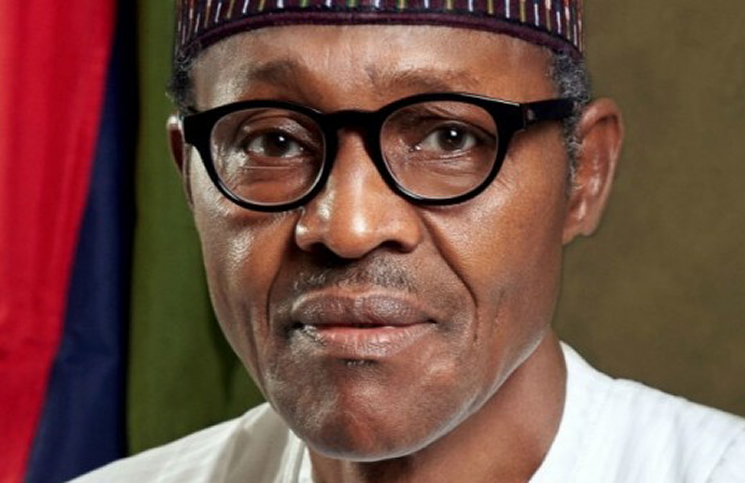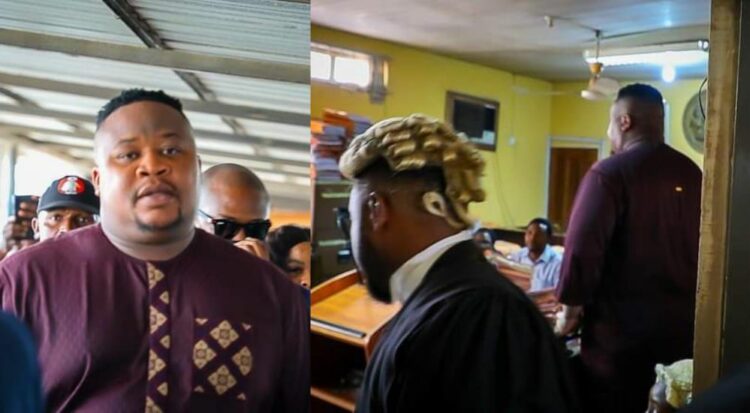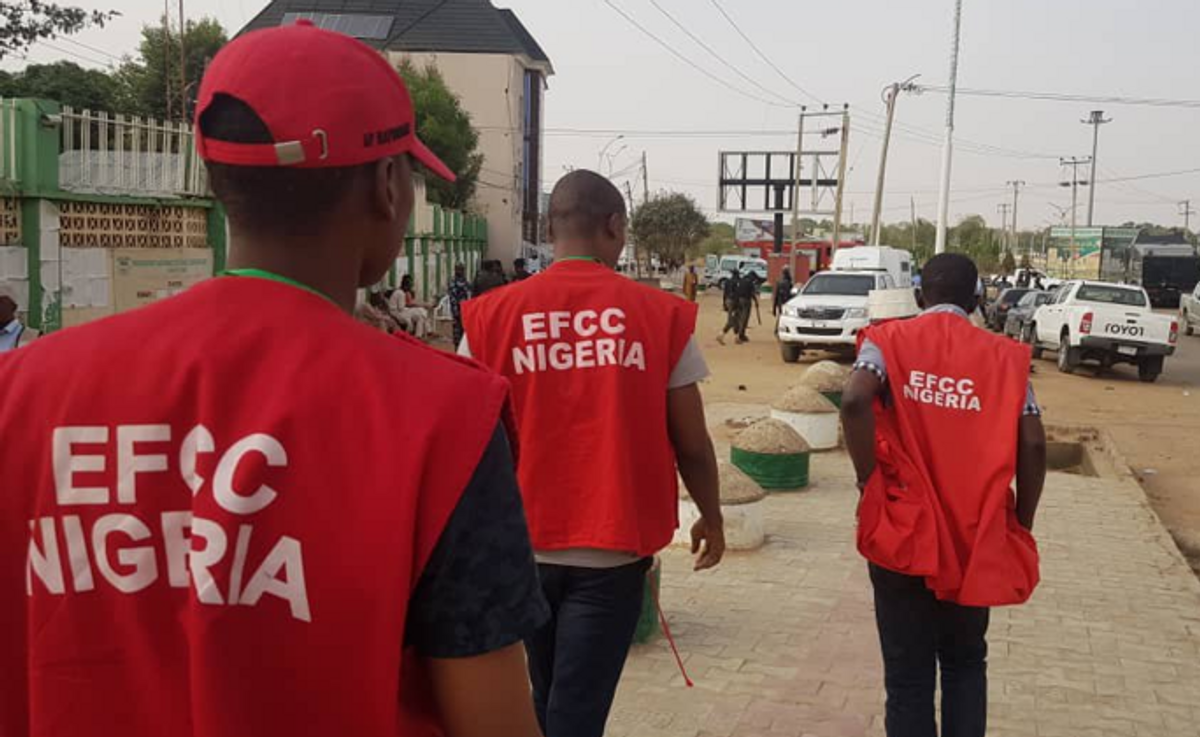There has been much Ado about a supposed ban order placed on 50 prominent Nigerians. But observers are asking if the presidential executive order as signed by President Muhammadu Buhari made provision for travel ban. Below are the details of the presidential executive order 6:
PRESIDENTIAL EXECUTIVE ORDER No.6 of 2018 ON THE PRESERVATION OF SUSPICIOUS ASSETS CONNECTED WITH CORRUPTION AND OTHER RELEVANT OFFENCES
Whereas it is the responsibility of the Federal Government of Nigeria to protect the resources of Nigeria from all forms of Corruption;
Whereas Corruption constitutes an unusual and extraordinary threat to the well-being, national security and stability of the country’s political and economic systems, as well as its continuous existence; and must be effectively addressed; President Muhammadu Buhari on Thursday signed an Executive Order to improve his administration’s fight against corruption.
By the powers vested in me under Section 5 of the 1999 Constitution as amended which extends to the execution and maintenance of the Constitution, all Laws made by the National Assembly (including but not limited to Section 15(5) of the Constitution) to, abolish all corrupt practices and abuse of power, it is the duty of any responsible government to restrict dealings in suspicious assets subject to corruption related investigation or inquiries in order to preserve same in accordance with the rule of law and to guarantee and safeguard the fundamental human rights; Now therefore, I, Muhammadu Buhari, President of the Federal Republic of Nigeria, in exercise of the powers conferred on me hereby declare as follows:
Section 1.
(a) Without prejudice to any laws or existing suits or any other rights arising out of or in respect thereof, all Assets of any Nigerian citizen within the territory of the Federal Republic of Nigeria, or within the possession or control of any person known to be a current or former government official, a person acting for or on behalf of such an official, any politically exposed person or any person who is responsible for or complicit in, or has directly or indirectly engaged in Corrupt Practices and Other Relevant Offences are forthwith to be protected from dissipation by employing all available lawful or statutory means, including seeking the appropriate Order(s) of Court where necessary, and shall not be transferred, withdrawn or dealt with in any way until the final determination by a court of competent jurisdiction of any corruption related matter against such a person.
This provision shall, in particular, apply to those connected with persons listed in the First Schedule to this Order, (or any such list as may be issued by the Attorney General of the Federation and Minister of Justice).
(b) Where a Government official or a person acting for and on behalf of such an official, directly or indirectly, engages in Corrupt Practices such as misappropriation of State assets for personal gain, receives any form of bribe or engages in Corrupt Practices related to the performance of his/her duties or the award or execution of Government contract; or transfers, launder or facilitates the transfer or laundering of proceeds of illicit activities, such official, in addition to forfeiting the proceeds in accordance with the relevant laws, shall forthwith be subject to the disciplinary procedure in accordance with the Public Service Rules and investigation by the Code of Conduct Bureau.
(c) (i) Subject to Section 174 of the Constitution, the Attorney General of the Federation shall have power to coordinate the implementation of this Order and to enlist the support of any Enforcement Authority particularly those listed in Second Schedule to this Order, or any other Person or Entity as may be required or permitted by applicable Law in order to give effect to this Executive Order.
(ii) The Attorney-General shall from time to time publish a list of all Assets protected pursuant to this Order.
(iii) The authority of the Attorney General of the Federation to preserve Assets pursuant to this Order shall extend to any Person who is under investigation in accordance with applicable law in connection with having materially assisted, sponsored, or provided financial, material, or technological support for, or goods or services to or howsoever in support of any Corrupt Practices or Other Relevant Offences by any Person whose Assets are protected pursuant to this Order; or any Entity that has engaged in, or whose members have engaged in, any Corrupt Practices or Other Relevant Offences, Provided however, that the Attorney-General shall at all times in this connection, employ all available lawful or statutory means, including seeking the appropriate Order(s) of Court where necessary, and ensure that Assets shall not be transferred, withdrawn or dealt with in any way until the final determination by a court of competent jurisdiction of any corruption related matter against such a person.
(iv) Where the Attorney-General has reasonable cause to believe that any funds or assets within Nigeria is connected with Corruption, the Attorney-General may, subject to his powers under Section 174 of the Constitution and other laws enabling him in that regard, approach the Court for an Order blocking or freezing or confiscating such funds or assets pending the conclusion of an investigation or legal action.
(d) Enforcement Authorities shall upon request communicate to the Attorney General of the Federation and Minister of Justice information arising from their investigation or enquiry on any Person (Nigerian or non-Nigerian), whether resident in Nigeria or not, determined by such Enforcement Authority to have directly or indirectly engaged in or involved in Corruption within the territory of the Federal Republic of Nigeria, and the Attorney General shall immediately commence or direct the commencement of appropriate process(es) either administratively or judicially as may be necessary subject to existing applicable law.
Section. 2.
(a) Any Person who in circumvention of this Executive Order attempts to or in fact:
(i) interferes with the free exercise of the authorities of the Office of the President,
(ii) destroys evidence,
(iii) corrupts witnesses through cash/kind inducements, and
(iv) generally perverts the course of justice shall be prosecuted in line with the provision of any Law(s) governing unlawful acts.
Section. 3.
(i) Any Person who alleges that his rights have been, are being or are likely to be contravened by any of the provision of this Executive Order may apply to a competent Court in his jurisdiction for redress.
Section. 4.
All Enforcement Authorities are hereby directed to diligently and rigorously collaborate with the Federal Ministry of Justice in implementing this Order to ensure the preservation of suspicious assets and prevent their dissipation or removal from the jurisdiction of Nigerian courts, in order to facilitate, support and enable the expeditious and accelerated prosecution of the alleged Corrupt Practices, serious or complex corruption, and Other Relevant Offences. Heads of Enforcement Authorities shall take personal responsibility and be subject to appropriate sanctions for any failure to comply with this Order.
Section. 5. For the purposes of this Order:
(a) The term “asset’’ means and shall include all properties including funds, liquid assets (bank balances), receivables, stocks and bonds held in portfolios, insurance policies, shares in listed or unlisted companies, and all manner of fixed assets.
It shall cover all such assets whether held directly or indirectly through corporate entities, trust structures and intermediaries;
(b) The term “corruption or corrupt practices’’ means as may be defined under any enactment:
(i) any corrupt activity involving matters of corruption generally economic sabotage, human trafficking, drug trafficking and terrorism involving funds or assets in the sum or value in excess of fifty million Naira (N50,000,000) or its equivalent in foreign currency;
(ii) any misappropriation of government asset, corruption related to government contracts or bribery; or
(iii) the transfer or the facilitation of the transfer of the proceeds of corruption.
(c) The term “enforcement authority’’ means agencies and instrumentalities of the Federal Government of Nigeria including but not limited to those listed in Second Schedule to this Order imbued with regulatory/enforcement powers;
(d) The term “entity” means a partnership, association, trust, joint venture, corporation, group, subgroup, or other organization;
(e) The term “other relevant offences” means any act, which may constitute an act of, terrorism, financing of terrorism, kidnapping, sponsorship of ethnic or religious violence, economic sabotage, cases of economic and financial crimes, including acts contributing to the economic adversity of the Federal Republic of Nigeria as defined by relevant laws.
(f) The term “person” means a natural or juristic person.
Section. 6.
This Executive Order shall take effect on day of 2018.
Section. 7.
This Order may be cited as the PRESERVATION OF SUSPICIOUS ASSETS CONNECTED WITH CORRUPTION AND OTHER RELEVANT OFFENCES ORDER, 2018.
DATED THIS ………….. DAY OF …………. 2018
Muhammadu Buhari PRESIDENT FEDERAL REPUBLIC OF NIGERIA

 News6 years ago
News6 years ago
 Featured6 years ago
Featured6 years ago
 Boss Picks6 years ago
Boss Picks6 years ago
 Headline6 years ago
Headline6 years ago
 Headline6 years ago
Headline6 years ago
 Headline5 years ago
Headline5 years ago
 Headline6 years ago
Headline6 years ago
 Headline6 years ago
Headline6 years ago













